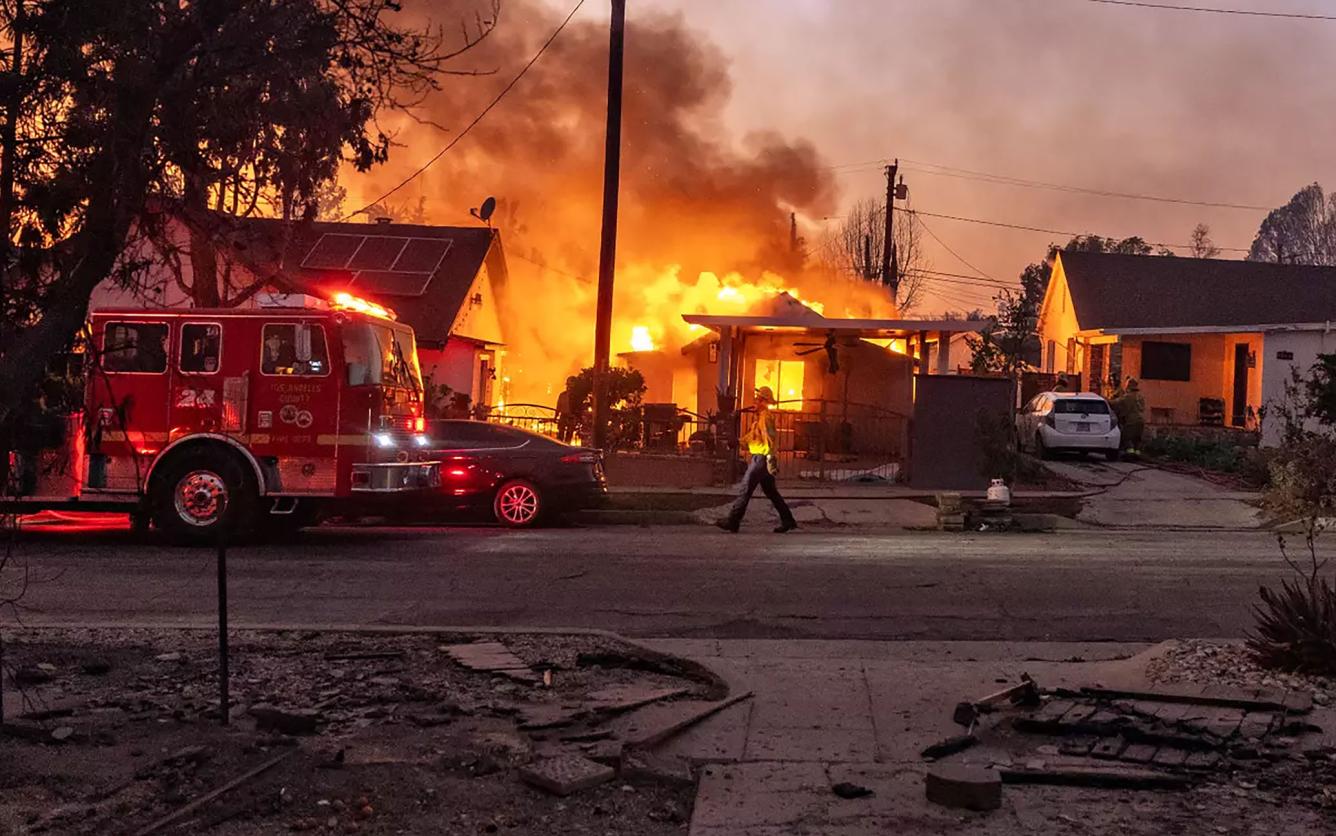LOS ANGELES — The last thing Anthony Mitchell Sr. told his eldest son was that he was still waiting for an ambulance as the swiftly moving Eaton fire bore down on his Altadena home.
“He called everybody and said, ‘I’m OK, I’m just waiting to be evacuated,’” the junior Mitchell said of their 5 a.m. phone call. “He probably knew nobody was coming, but he wanted to keep everybody at ease.”
The great-grandfather

and Mitchell family patriarch was an amputee who used a wheelchair. His son Justin Mitchell had cerebral palsy and needed help to get out of bed. They couldn’t escape on their own, and relatives said firefighters stopped them from entering the evacuation zone.
He probably could have gotten up and walked away, but he’s not gonna leave my brother,” Mitchell said. “My father would never leave any of his kids. His children were his legacy.”
So the pair huddled together awaiting a rescue that never came, becoming two of the first victims of the unprecedented firestorms still raging across L.A. County.
“What hurts the most is that our state didn’t prepare for this at all,” Mitchell said.
Officials have known for years that Californians with disabilities are disproportionately likely to die in wildfires. The state released a scathing audit in 2019 detailing how emergency management agencies and other first responders were unprepared for the threat.
At that time, about 4 million Californians were estimated to have a disability, including almost a quarter million Angelenos under 65.
Many say they feel even more vulnerable now.
“You feel helpless,” said actress and singer Joci Scott, 26, a wheelchair-user in North Hollywood. “Evacuation procedures usually forget people with disabilities. It’s a lot more difficult for us.”
Black residents like the Mitchells are much more likely to have a disability than white, Latino or Asian ones, data show. They were among those who cannot evacuate without help. Others, such as Scott, are reluctant to flee, knowing the tools they rely on to breathe, move, eat, bathe and go to the bathroom cannot come with them and aren’t available at most shelters.
“I have important medication I can’t go without and mobility equipment that’s very expensive and difficult to replace,” Scott said. “It’s really overwhelming.”
Even small and relatively inexpensive prescription medical goods such as urinary catheters can be onerous to find, especially in an emergency, the actress said. Yet without them, “I’m immediately at risk for kidney infection and sepsis.”
